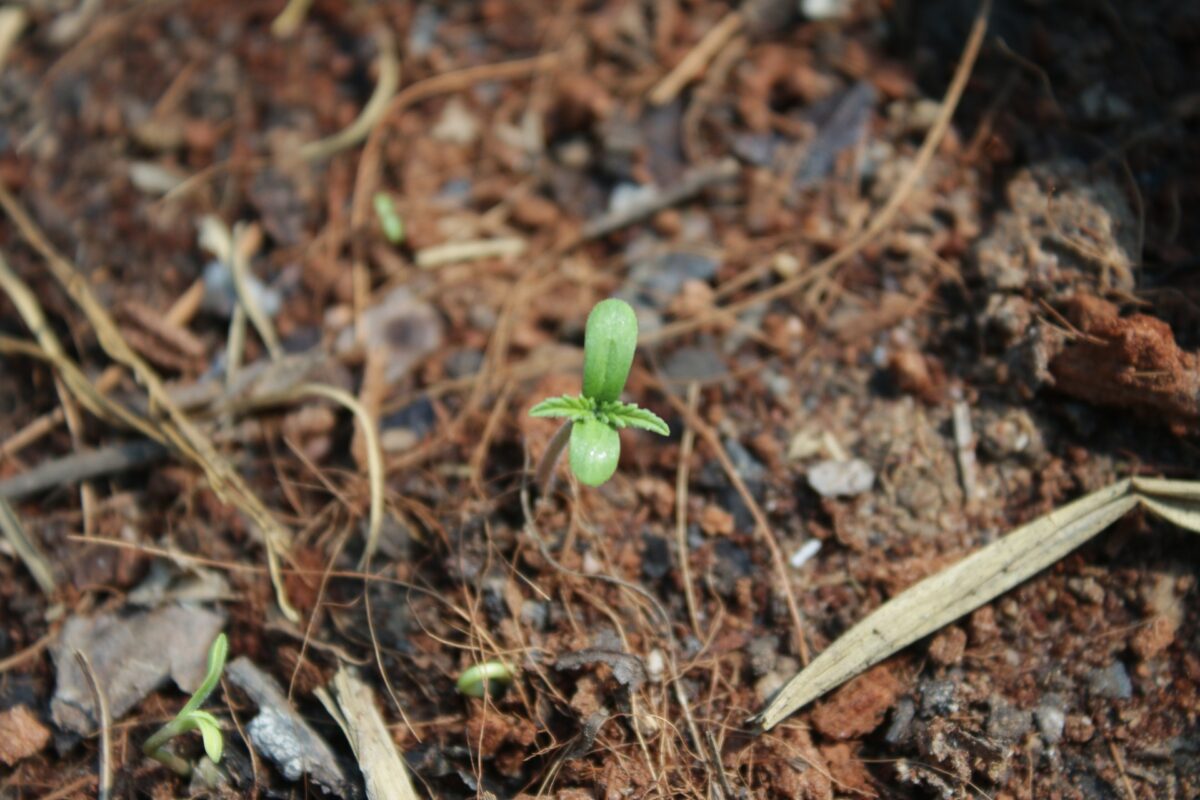
From Hemp to Marijuana: How New York Farmers Will Grow the State’s First Harvest
New York is taking an unprecedented approach to supplying the incoming recreational market. The first wave of legal cannabis crops will come from cannabinoid hemp farmers in upstate New York. The outdoor, “sun-grown” crops are expected to supply the first wave of dispensaries scheduled to open at the end of 2022. It presents a unique and positive opportunity for those considered to be “distressed farmers,” i.e., small farmers who have seen financial hardships in the shifting economy. The individuals who qualify are included under New York’s robust Social Equity Program. New York’s attempt to create an economically and socially diverse cannabis market is steadily moving toward its first sales.
New York’s Seeding Opportunity Initiative
On March 10th, 2022, Governor Kathy Hochul announced the new Seeding Opportunity Initiative to be led and managed by the Office of Cannabis Management (OCM) and the Cannabis Control Board (CCB). It’s comprised of three programs:
- Social Equity-Lead Program: This program provides conditional adult-use retail dispensary licenses to eligible equity-business applicants. Individuals who quality will be the first providers of adult-use cannabis sales.
- Farmers First Program: This program will grant qualifying cannabinoid hemp farmers a conditional cultivator license. It will empower them to initiate the first cannabis cultivation in New York’s emerging market.
- The New York Social Equity and Cannabis Investment Program: $200 million in funds will be available for qualifying candidates of this program which will assist in critical areas like licensing fees, private funding from Social Equity Impact Ventures LLC, and prime real estate leasing and construction services from the Dormitory Authority of the State of New York. This program also intends to invest in ancillary services that would assist with barriers to entry to ensure long-term market success.
The Seedling Opportunity Initiative is expected to start New York’s regulated cannabis market. It will allow individuals with cannabis-related offenses before the passing of the Marijuana Regulation and Taxation Act (MRTA) to be some of the first to make sales with products grown by New York distressed farmers. According to Executive Director Chris Alexander of the Office of Cannabis Management, the first round of social equity conditional adult-use dispensary licenses will go to individuals who have incurred felony charges.
Despite the hopeful anticipation around the regulated market, some have been critical of the OCM’s process. One concern is the state’s ability to meet consumer market demands due to its choice to start with outdoor cannabis since outdoor cannabis plants produce lower THC levels than their indoor counterparts. If the state intends to ensure the unregulated market has a clear pathway to licensed credibility, it must compete with consumers’ preferences. Indoor grow houses expect to start production after, with state-licensed medical dispensaries expecting to be the leading initial suppliers.
Another concern is the stipulation of “justice -involved” since applicants with cannabis-related charges require ownership of a business with at least 2 years of profit. Not only is a felony charge a barrier for entrepreneurs when sourcing capital, but the world economy is just now recovering from the peak of the Covid-19 pandemic. Additionally, for individuals considered “legacy”unregulated cannabis suppliers, the incentive to merge their know-how with state-run turn-key operations is uncertain.
Approved Cannabis Cultivator Licenses in New York
The Office of Cannabis Management accepted adult-use conditional cultivator applications from March 15, 2022 until June 30, 2022. New York State prioritized and awarded 203 hemp growers cultivation licenses. The program has prioritized New York hemp farmers who hope THC-yielding plants will become a much-needed cash crop. Farmers expect to adhere to stringent guidelines, including:
- The licensees must submit an operation plan for their business within 6 months of its awarding.
- The licensees must submit an Annual Cultivation Report to the Office of Cannabis Management. The report must demonstrate compliance with the guidance provided by the OCM. In addition, the OCM will give feedback to the licensees for any required changes to Adult-Use Conditional Cultivator operations and provide steps to retain compliance with the program’s parameters.
- Each Adult-Use Conditional Cultivator license has a two-year expiration date from the time of initial issuance. Therefore, licensees are required to submit updated records. The OCM will use the documents to evaluate whether the business entity can qualify for an adult-use cannabis cultivator license.
Since the state is still in the process of establishing the regulatory framework of their cannabis program, cannabis licensees may see regulations issued in iterations. A clear example is the Office of Cannabis Management’s new guidance letter issued June 4th, which limited the original proposed 2-3 outdoor crops to one. As a result, many cannabis cultivators are now forced to rip out already matured crops. Additionally, they incur the economic burden of overestimated equipment and staffing needs.
Future Cannabis Business Licensing
On June 28th, 2022, the Office of Cannabis Management opened its Conditional processing licenses. These licenses allowed eligible cannabinoid hemp processors to apply for an Adult-Use Conditional Processor License. Processors will be tasked with taking raw cannabis plants and manufacturing them into cannabis-infused products, such as oils, edibles, and distillates.
Current and future cannabis business licensing in New York includes:
- Micro-business: A business entity permitted to have limited cultivation, processing, distribution, delivery, and dispensing of its cannabis and cannabis products.
- Cooperatives: Licensed business entities authorized to acquire, possess, cultivate, process, distribute, and sell from its premises to a distributor, on-site consumption site, registered organization, and dispensary. They do not sell directly to cannabis consumers.
- Nursery: A licensed business entity that produces, sells, and distributes clones, immature plants, seeds, and other agricultural products used for cannabis horticulture.
- Distributor: A licensed business entity tasked with selling to dispensaries and consumption lounges.
- Retail Dispensary: A licensed business entity tasked with selling any retail cannabis product to cannabis consumers.
- Cooperative: A licensed business entity authorized for limited cultivation, processing, distribution, delivery, and dispensing of their adult-use cannabis and cannabis products.
- On-Site Consumption: A licensed business entity where the consumption of cannabis in an area is approved by the Office of Cannabis Management. An on-site consumption license authorizes acquiring, possessing, and selling cannabis to cannabis consumers for use at the licensed location.
- Delivery: A licensed business entity that delivers cannabis and cannabis products directly to cannabis consumers.
New York consumers, retailers, and suppliers await the long-anticipated adult-use market opening. The following social equity cannabis applicants are ready to establish credibility and economic security in this new market. The War on Drugs has done pervasive harm to communities. Yet, despite the unknown regulations and guidelines dictated by the Office of Cannabis Management, prospective applicants are taking New York’s attempt to right injustices seriously. Government board meetings, private expos, and community events are filled with cannabis-involved New York residential experts and novices.
How Can Point Seven Group Help?
The team of cannabis consultants and professionals at Point Seven Group have worked extensively in the U.S. and international cannabis markets and are familiar with the unique challenges of the cannabis industry. Follow us on social media to stay up to date with more cannabis industry updates!
- Wayzata moves to open city-run weed dispensary
 The City of Wayzata is considering opening its own recreational cannabis dispensary sometime next year. On Tuesday, Wayzata’s City Council and mayor approved a contract with Colorado-based consulting firm Point7 to draft a business plan for the possible municipal dispensary. This would be the city’s …
The City of Wayzata is considering opening its own recreational cannabis dispensary sometime next year. On Tuesday, Wayzata’s City Council and mayor approved a contract with Colorado-based consulting firm Point7 to draft a business plan for the possible municipal dispensary. This would be the city’s … - Indiana Cannabis Legalization: 2024 Update
 The Midwest has become a bustling hub for cannabis policy and industry, with states like Michigan, Illinois, and Ohio leading the charge in cannabis legalization. However, Indiana’s stance on cannabis remains a topic of significant interest and debate. As we delve into the status of …
The Midwest has become a bustling hub for cannabis policy and industry, with states like Michigan, Illinois, and Ohio leading the charge in cannabis legalization. However, Indiana’s stance on cannabis remains a topic of significant interest and debate. As we delve into the status of … - Cannabis Expungement and Social Equity: Proven & Failed Concepts
 In the realm of cannabis expungement and social equity, examining both proven and failed concepts is crucial for understanding the complexities of justice reform and equity within the cannabis industry. Proven concepts include initiatives such as automatic expungement processes, which streamline the clearance of certain …
In the realm of cannabis expungement and social equity, examining both proven and failed concepts is crucial for understanding the complexities of justice reform and equity within the cannabis industry. Proven concepts include initiatives such as automatic expungement processes, which streamline the clearance of certain …

